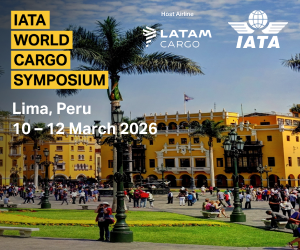In a bold step that reaffirms its commitment to pharmaceutical and high-value cargo handling, Worldwide Flight Services (WFS) — a SATS Group company — is laying the groundwork for a major pharma-ready cargo terminal at Lyon-Saint Exupéry Airport (LYS). Due to open in summer 2026, this facility is set to transform Lyon into France’s second-largest cargo hub, after Paris Charles de Gaulle, and a strategic node in Europe’s temperature-sensitive cargo landscape.
The development of this facility is more than a logistics upgrade — it’s a calculated move designed to meet the growing needs of global healthcare logistics, anchored in one of the world’s leading vaccine-producing regions, the Rhône-Alpes. This region is not only home to pharmaceutical giants and biotech clusters, but as of April 2025, the World Health Organization’s regional hub as well — reinforcing Lyon’s global standing in life sciences.
Strategically Positioned, Purpose-Built
The new terminal — occupying a 25,313m² footprint — is being built on the Aéroport de Lyon DC1 site under a 20-year lease, adjacent to the runway for seamless aircraft access. The building will feature 19,133m² of warehousing, 2,441m² of canopy, and 4,400m² of GDP-compliant temperature-controlled space, specifically engineered for pharmaceuticals and perishables requiring +2°C to +25°C storage.
From a capacity and design standpoint, the terminal addresses a long-standing gap in scalable, pharma-compliant facilities outside Paris. 36 loading docks, five of which will be tailored for aircraft pallets, and dedicated office blocks for freight customers, position this site as a versatile, high-throughput freight hub for both regional exporters and global carriers.
“This facility will allow us to consolidate operations, streamline flows, and deliver unmatched quality in pharma handling,” explains Laurent Bernard, Vice-President, WFS France. “Its proximity to runway access, scalable temperature-controlled zones, and digital infrastructure will be key to improving speed and compliance in a highly regulated environment.”
Regional Economic Growth Engine
Developed in partnership with Groupe em2c, Prologis, and Aéroports de Lyon, the terminal is expected to generate over 300 direct and indirect jobs across freight, forwarding, and logistics services. It’s also a cornerstone of VINCI Airports’ wider CargoPort development strategy — aimed at scaling Lyon’s capacity for international logistics.
“This investment is a turning point for Lyon’s freight zone,” said Cédric Fechter, Chairman of the Management Board, Aéroports de Lyon. “With WFS operating a GDP-certified pharma centre, we are directly supporting the growth of our region’s world-class healthcare exports and reinforcing our airport’s role in the global cargo chain.”
Sustainability at the Core
In alignment with SATS-WFS’s global Environmental, Social and Governance (ESG) strategy, the Lyon terminal is designed to achieve BREEAM ‘Very Good’ certification. It features a photovoltaic roof, LED lighting, and electric vehicle charging stations, ensuring energy efficiency and a low environmental footprint. Surplus energy will be redistributed to the local grid, reinforcing the project’s sustainable credentials.
“This terminal exemplifies how sustainable logistics infrastructure can drive both regional growth and global competitiveness,” noted Vincent Sadé, Vice President, Capital Deployment France, Prologis. “It’s a clear blueprint for how industrial logistics and green construction can go hand-in-hand.”
Global Connectivity Through SATS–WFS Integration
The Lyon hub will plug directly into the SATS-WFS global cargo network, which spans 215 stations in 27 countries and supports trade routes responsible for over 50% of global air cargo volumes. By centralising previously fragmented operations, the Lyon terminal will ensure greater shipment traceability, compliance, and turnaround times — all within a fast-moving and complex regulatory environment.
“Our collaboration brings together best-in-class engineering, aviation infrastructure, and pharmaceutical logistics to create a facility that serves as a regional anchor for global connectivity,” said Yvan Patet, President of Groupe em2c. “This is infrastructure built not just for today, but for the future of global healthcare logistics.”
A Blueprint for Regional Airfreight Development
In an industry where speed, compliance, and sustainability are converging into core expectations, WFS’s investment in Lyon is a clear signal of what the future of air cargo infrastructure looks like: digitally enabled, environmentally responsible, pharma-ready, and regionally embedded.
As global airfreight increasingly pivots toward high-value and time-critical commodities, facilities like Aéroport de Lyon DC1 will define how supply chains evolve — not only in response to demand but in shaping the standards of the next era of cargo operations.





